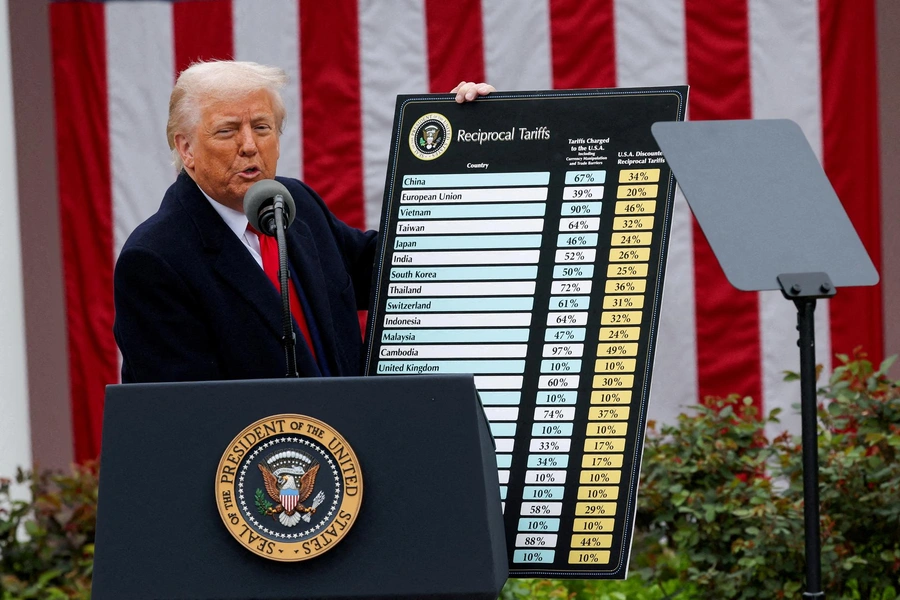Key Takeaways
1. The U.S. will implement separate tariffs on imports of smartphones, computers, and semiconductors to boost domestic manufacturing.
2. A “special focus type of tariff” will now apply to previously exempt consumer electronics, impacting companies like Apple and Samsung.
3. The policy change aims to address national security concerns and reduce reliance on Southeast Asian manufacturing.
4. Experts warn that the cost of products like iPhones could increase significantly as production shifts to the U.S.
5. The new tariffs may alter global trade relations and raise concerns about supply chain stability.
The United States is getting ready to implement separate tariffs on imports of smartphones, computers, semiconductors, and similar components in the next one to two months, as stated by US Commerce Secretary Howard Lutnick. According to ABC News on April 13, 2025, this action indicates a strategic shift aimed at bolstering domestic manufacturing.
New Tariff Details
Consumer electronics imports will now be subject to a “special focus type of tariff.” “We need to have semiconductors, chips, and flat panels made in America. We can’t depend on Southeast Asia for everything that operates for us,” Lutnick explained. This announcement follows President Donald Trump’s decision from April 11 to exempt smartphones, laptops, and other electronics from reciprocal tariffs imposed on April 2, a day referred to as “Liberation Day.”
Impact on Importers
The US Customs and Border Protection notice, effective from April 5, included products such as hard drives and memory chips, providing relief to companies like Apple and Samsung. Lutnick later clarified that these products will now be included in a “special focus type of tariff” set to begin soon, even though they were previously exempt from reciprocal duties. To avoid the tariff deadline imposed by Trump, Apple moved its inventory from India and China to the US in the last week of March.
National Security and Economic Concerns
This policy change aims to tackle national security issues, with Lutnick declaring that discussions with other countries are off the table. “These are things that are national security that must be made in America,” he mentioned. Experts have warned that “Made in America” iPhones could potentially rise to $3,500, indicating possible cost increases as production is shifted. The Trump administration aims to protect consumers and assist US firms while promoting self-sufficiency, although the swift policy change raises concerns about the stability of supply chains.
As these tariffs come into play, the emphasis on domestic chip and electronics production could significantly alter global trade relations.


Leave a Reply